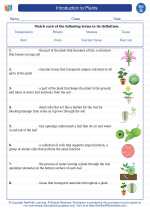Introduction to Plants -> food source
Food Source
Food source refers to the origin or place where a particular type of food comes from. It can be categorized into various groups based on the source of the food, such as plants, animals, and other sources. Understanding food sources is important for understanding the nutritional content and the impact of food on the environment.
Plants as Food Sources
Plants are a primary food source for humans and animals. They provide essential nutrients such as carbohydrates, proteins, vitamins, and minerals. Examples of plant-based food sources include fruits, vegetables, grains, nuts, and seeds. Understanding the different types of plant-based foods and their nutritional value is crucial for maintaining a balanced diet.
Animals as Food Sources
Animals also serve as a significant food source. They provide essential nutrients such as proteins, fats, vitamins, and minerals. Common animal-based food sources include meat, dairy products, and eggs. Understanding how different animal-based foods contribute to a balanced diet and the ethical considerations associated with animal farming is important for making informed dietary choices.
Other Food Sources
Aside from plants and animals, there are other food sources that contribute to human nutrition. These include fungi, algae, and microorganisms. While less common in the human diet, these sources can provide unique nutrients and flavors. Understanding the potential benefits and challenges of incorporating these alternative food sources into the diet is an area of ongoing research and innovation.
Study Guide
- Explain the concept of food source and its significance in human nutrition.
- Discuss the nutritional value of plant-based food sources and provide examples of each.
- Explore the nutritional components of animal-based food sources and their role in a balanced diet.
- Investigate alternative food sources such as fungi, algae, and microorganisms, and their potential impact on human nutrition.
- Analyze the ethical and environmental considerations associated with different food sources.
Understanding food sources is essential for making informed decisions about dietary choices, considering environmental impacts, and promoting sustainable food systems.
[Food Source] Related Worksheets and Study Guides:
.◂Science Worksheets and Study Guides Seventh Grade. Introduction to Plants

 Worksheet/Answer key
Worksheet/Answer key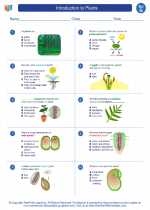
 Worksheet/Answer key
Worksheet/Answer key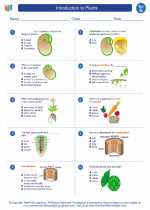
 Worksheet/Answer key
Worksheet/Answer key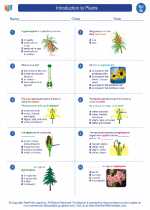
 Worksheet/Answer key
Worksheet/Answer key
 Vocabulary/Answer key
Vocabulary/Answer key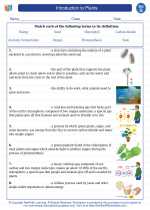
 Vocabulary/Answer key
Vocabulary/Answer key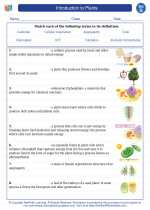
 Vocabulary/Answer key
Vocabulary/Answer key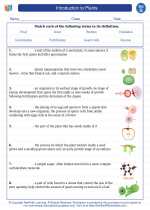
 Vocabulary/Answer key
Vocabulary/Answer key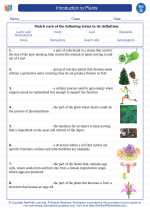
 Vocabulary/Answer key
Vocabulary/Answer key